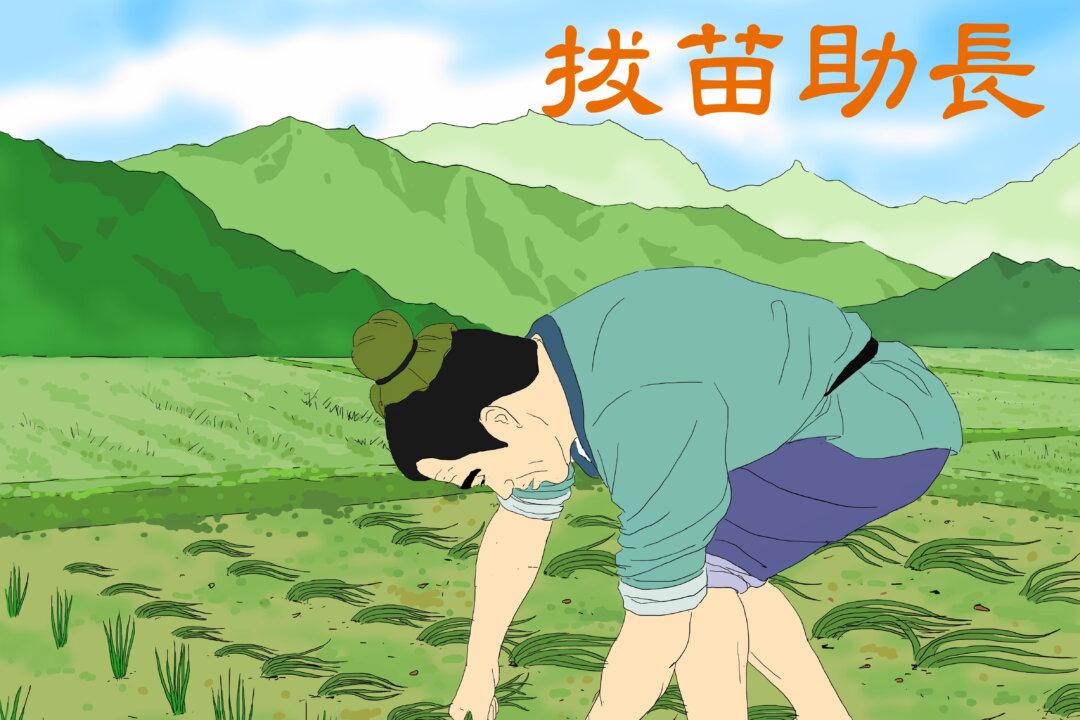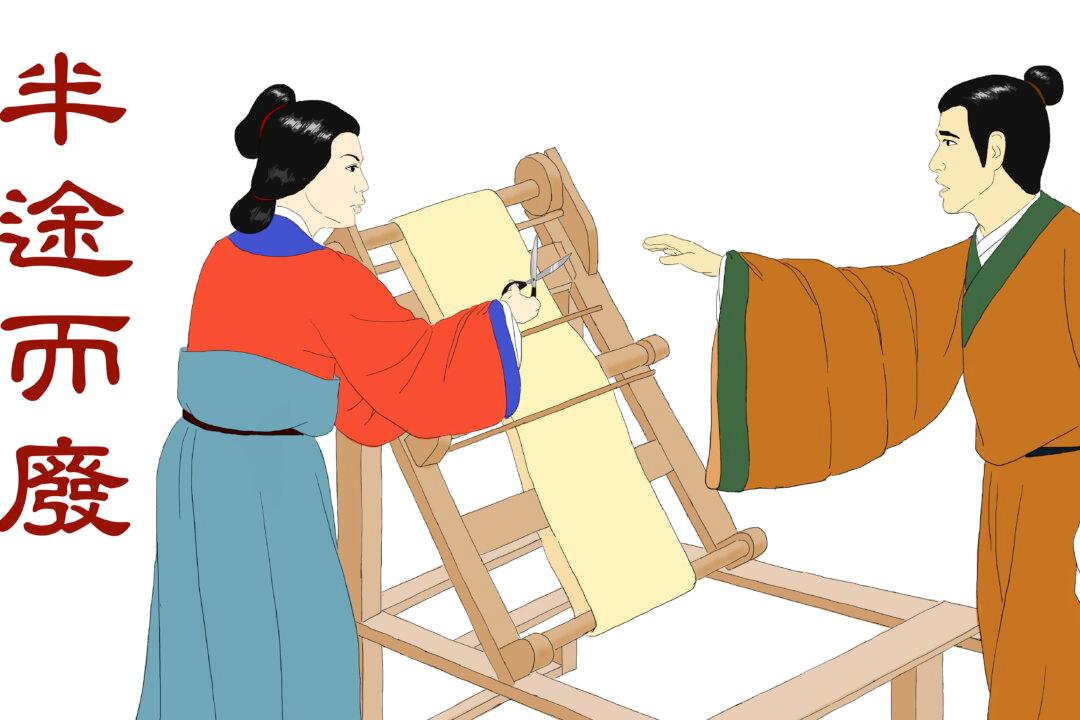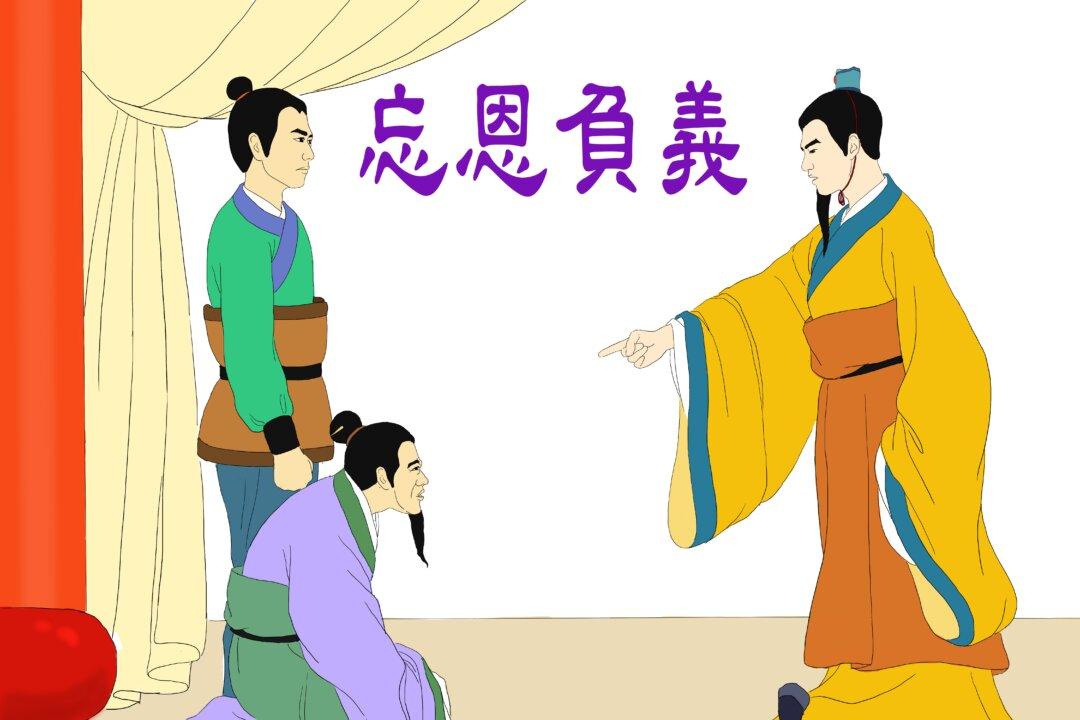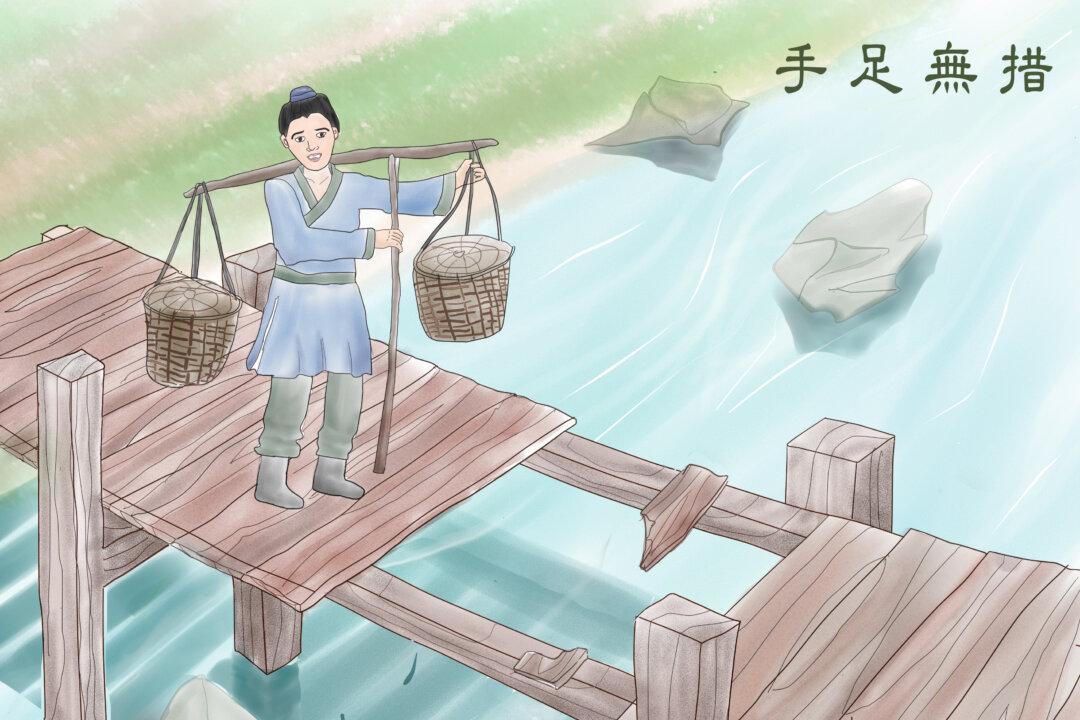The idiom “pulling up seedlings to help them grow” originated from “Gong Sun Chou Shang (公孫丑上),” an article by Meng Zi(1) (also known as Mencius) who was one of the great philosophers in Chinese history.
In the article, while addressing questions from Gong Sun Chou, the young disciple, Meng Zi told of an impatient farmer who once lived in the Song state during the Warring States period (475–221 B.C.).
The farmer wanted his seedlings to grow fast. For an entire week, he watched the seedlings expectantly. He became very disappointed when he saw there was little difference day after day. The farmer was puzzled by the slow progress and tried to find ways to get quicker results.
One day, he came up with the idea to pull the seedlings up a little to help them grow. He was very excited about this plan and ran out to the field early the next morning.
The farmer pulled the seedlings out of the ground, one by one. He worked very diligently and was quite happy when he saw that, with this help, they were indeed taller.
At nightfall, when he arrived home, he said to his wife and son: “I’m exhausted today, but it was worth it! I helped all the seedlings grow taller today.”
Hearing this, his surprised son immediately ran to the field to see for himself. What he saw was seedlings all withered and dying.
Meng Zi used this story to illustrate that cultivating a noble spirit is a long-term, step-by-step process, and that noble spirits cannot be achieved by conscious and transient efforts.
The idiom “pulling up seedlings to help them grow” is now used to refer to someone who is impatient for success and destroys the very conditions upon which success depends.
Sometimes, it is also used to describe someone who hastens the pace hoping for quick results.
Note:
1. Meng Zi (about 372–289 B.C.) has been recognized as the most famous Confucian after Kong Zi (Confucius).




